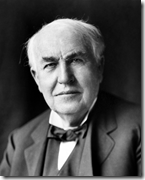With justifiable concern over the high cost of a college degree, I find myself constantly reminding people that there are alternatives to the traditional accumulation of debt in pursuit of a college diploma, including the slightly unorthodox path that I took to college.
I began my college career at Manchester Community College in Manchester, CT at the age of twenty-three. I stated college later than most, primarily because the path to secondary education had never been made apparent to me. Throughout my childhood and during my entire high school career, the word college was never once uttered to me. Not by parents, not by teachers, and not by guidance counselors. For reasons that I will never understand, it was universally determined at an early age that I was not college material.
So even though I graduated in the top 5% of my high school class, I found myself rudderless and lost after graduation with no plan for the future. I quickly moved out of my childhood home, a process that had begun two years earlier when my parents gave me bath towels, flatware and a microwave oven for my birthday (making it clear what they expected of me), and embarked on a five year journey of difficulty and heartache that ultimately led me back to school.
I attended Manchester Community College for two years, earning an Associates degree in liberal arts. I have attended three other colleges and universities since my days in Manchester, earning degrees at each one, but the best education I ever received was at MCC.
After graduating from MCC, I enrolled at Trinity College in Hartford, CT. Trinity accepted all but one of my community college credits, meaning that I effectively received two years of Trinity College credit at a community college price.
At the time, tuition at Trinity was about $38,000 per year.
The cost of my two years of community college? Less than $5,000.
A savings of more than $70,000 for the two years.
As a result of my academic performance (top 5% of the class again) and involvement in the MCC community (President of the Honor Society, member of student council, a Truman Scholarship finalist), I was offered immediate acceptance and a sizable scholarships at a number of outstanding schools in the area, including Yale University, but I opted for Trinity College for a number of reasons.
Most important, Trinity was only about fifteen minutes away from home and work. While attending MCC and Trinity, I worked about 50 hours a week managing a McDonald’s restaurant, launching my DJ business and tutoring in the writing center on campus, so proximity to home and work was critical if I was going to succeed.
Trinity also had a program that specifically catered to non-traditional students. Though it did not change my course work in any way, Trinity’s IDP program was designed to help integrate the non-traditional student into campus life as much as possible, and the program made me feel more welcomed and accepted than any of the other colleges I was considering.
Trinity was also a member of the Greater Hartford Consortium of Colleges, affording me access to a number of colleges in the greater Hartford area. This allowed me to earn a degree in English from Trinity while simultaneously earning a teaching degree at St. Joseph’s College, an all-women’s school in neighboring West Hartford that had a solid reputation for turning out excellent teachers. Thus I earned two degrees at two different institutions for the price of one.
Enormous savings.
I attended Trinity College (and St. Joseph’s College) for a total of three years, meaning that I spent a total of five years in college while most traditional students spent four. But I graduated with two degrees (three if you count my Associates degree from MCC), making the extra year well worth it.
I received a number of scholarships from Trinity based upon my academic performance at MCC (another enormous benefit of attending community college first), but I was still responsible for well over half the cost of tuition during those three years of school. I paid for this with student loans, Pell grants, and personal savings, graduating with about $16,000 in debt.
Don’t get me wrong. $16,000 is a lot of money, but it’s not an overwhelming amount of money when paid off over time. Six months after graduating, my loan payments amounted to less than $300 a month.
Absent any parental support or college savings, the cost of a college education could have been astronomical for me. Paying the full cost of four years at Trinity College without the benefit of scholarships would have left me with a debt exceeding $100,000. Though I certainly had to make sacrifices in order to earn my college degree, I did so without crippling my financial future.
While it would have been wonderful to attend college immediately after high school and live on campus for four years, this was simply not a possibility for me after high school. I did things a little differently, and though it set me back by at least five years in comparison to my peers, I also feel like I was much better prepared for college when I finally made my dream a reality. I had spent the previous five years before college struggling immeasurably. I had been homeless, jobless, penniless and had experienced the crushing sadness that comes with the belief that you have no way of making your dreams a reality. When I entered my first college classroom in the fall of 1994, I was ready to work and prepared to excel.
There are many roads to college. Some are easier than others. Some are costlier than others. The crippling debt that so many students graduate with today is not required in order to be successful. It is a choice that is made by students who do not want to compromise on their road to higher education. I respect their decision. I sometimes wish I had made the same decision. But the crushing debt that follows graduation should not come as a surprise. A college education has a cost attached to it, and that cost is made clear before a person ever signs a student loan agreement.
I remind my students almost every day that anyone can find a way to pay for college, regardless of their family’s financial means. All they need is the desire to succeed and the willingness to work.
Don’t let anyone tell you otherwise.









